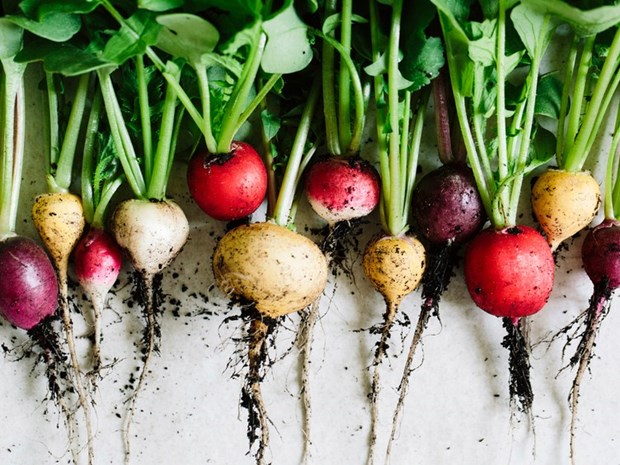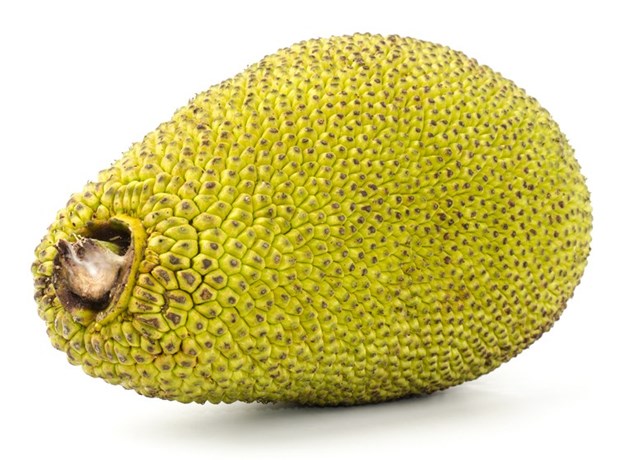
Schon & Probst / Getty Images
It’s
been a big year for some… interesting food trends. Our Instagram feeds saw an
endless scroll of avocado roses, rainbow bagels, and ridiculous milkshakes.
Most of which were more fun to watch than they were to actually eat.
Fortunately,
social media bait wasn’t the only thing having a moment in 2016—plenty of
healthy eats swelled in popularity, too. Lower-carb foods like vegetable
noodles, cauliflower rice, and sweet potato toast flooded food blogs everywhere,
added sugar became something more and more people tried to avoid, and turmeric
was a straight star. All in all, it was a pretty freakin’ healthy year.
And
2017 is poised to be even healthier. We spoke to registered dietitians about
the good-for-you food trends on track to blow up in the new year. We’re pretty
excited about what’s in store.
1. Ugly produce
Cara
Harbstreet, M.S., R.D., L.D., of Street Smart Nutrition, tells us, “Consumers, especially millennials, are
highly attuned to the impact their food choices may have on their communities
and the planet.” That’s why she says ugly produce is likely to pick up
steam in the new year.
What
exactly is ugly produce? It is what it sounds like: produce that isn’t pretty
(think, deformed apples and bent carrots). These fruits and veggies often go
straight to the dumpster, and, as Katie Cavuto, M.S., R.D., tells us, are a
huge part of the growing food waste problem.
As
of now, you’ll likely only be able to find this kind of produce at farmer’s
markets. But, if our predictions are correct, you’ll be spotting them in Whole
Foods and other health food stores by the end of the year.
2. Stem to root
cooking.
This
trend is another that comes from the growing interest in food waste prevention,
Harbstreet tells. What it is is simple: Rather than using just the pretty parts
of fruits and vegetables, home cooks and chefs alike are beginning to
incorporate all their byproducts, too. Things like carrot and beet stems and
broccoli stalks, or, as a recent Whole Foods report points out, chickpea juice
and the whey leftover from yogurt.
Though,
at first glance, these items may seem unsavory, there are plenty of creative
ways to make them tasty. Like, did you know that you can use chickpea juice to
make vegan egg whites? This trend is both amazing and sustainable.
3. Seaweed and other
unusual greens.
We’ve
seen seaweed chips popping up a lot lately (Annie Chun’s Seaweed Crisps are an
office fave), and you’re likely to see the nautical green a lot more in the new
year. According to a recent report from the restaurant consulting company Baum
+ Whiteman, consumers are starting to seek out seaweed more and more. The
report attributes its growing popularity to its alluring umami flavor—which
many chefs utilize in soups, sauces, and finishing oils and salts. If that
weren’t enough to pique your interest, Whole foods has already begun stocking
the product in stores. Expect to see it and other similar greens (think kelp)
in the coming months.

Thitaree Sarmkasat / Getty Images
4. Golden lattes
“Golden
lattes are a drink made with turmeric, coconut oil, ginger, black pepper,
cinnamon, honey, and unsweetened plant-based milk,” Brigitte Zeitlin, R.D.,
M.P.H., C.D.N., founder of the New York-based BZ Nutrition, tells. “They will
be a big trend in the new year because of an increased interest in
anti-inflammatory foods.” And if 2016 was the year of turmeric, it only makes
sense that turmeric lattes will blow up in 2017.
5. Veggie burgers
that actually taste like meat. No, seriously.
2016
was the year of many extraordinary happenings, one of which was the development
of a completely vegetarian burger that bleeds like real meat. In the new year,
Beyond Burger, as it’s called, will be available at supermarkets nationwide
(they’re already in the meat sections at select Whole Foods). Or you can travel
to New York restaurant Momofuku Nishi, Jardinière and Cockscomb in San
Francisco, or Crossroads Kitchen in Los Angeles to try out the similarly meaty
Impossible Burger.
6. And other
vegetarian food you'll actually want to eat.
New
York restaurants Superiority Burger, Nix, and the bicoastal By Chloe are all
taking vegetarian food up a notch. They’re serving dishes like fry bread (which
is fried bread) and vegan chocolate chip cookies that honestly taste better
than the real deal. Together they’re turning vegetarian food into the stuff
that cravings are made of.
And
it’s not just in New York, either. Restaurants all around the country are
picking up on the trend. There’s also Herbivorous Butcher in Minnesota and
Vedge in Philadelphia. And so many food bloggers are developing mouthwatering
comfort food recipes that also just so happen to be vegetarian. So if you can’t
get to one of these stops, you can instead give the trend the old DIY try.

Nungning20 / Getty Images
7. Jackfruit
Standing
out among the meaty stand-ins: jackfruit. “This is a fruit that hails from
Asia,” Amy Gorin, M.S., R.D., owner of Amy Gorin Nutrition in Jersey City says.
She explains that it’s often used in place of meat because, when cooked, it has
a texture that’s strikingly similar to pulled pork.
There’s
just a few things to keep in mind: Despite its meaty texture, jackfruit isn’t
very high in protein, with just 2.8 grams per cup, versus the 20 grams of
protein per cup of tofu. So if you are going to be cooking with this fruit,
Gorin encourages you to incorporate other protein sources into your recipes.
Since it’s a fruit, it also has a decent amount of sugar, so it may not be the
meat-alternative you’re looking for if you’re trying to cut back on the sweet
stuff.
8. Dinner kits and
meal boxes
Subscription-based
meal kit services may not be new, but Harbstreet says you’ll soon be able to
find similar kits in supermarkets. “More grocery stores are beginning to offer
meal kits that make home cooking easier and more convenient,” she tells. It really
is the perfect solution for anyone who can’t bear the thought of actually doing
meal prep.
9. Ancient grains you
haven't heard of yet.
Move
along quinoa and farro—the new year is going to be all about other ancient
grains like teff. “Teff is higher in protein and fiber than some other grains,”
Gorin tells SELF. In fact, a single cup has 10 grams of protein and 7 grams of
fiber. As for its flavor profile, you can expect something that tastes (and
looks) like a cross between flax seeds and quinoa.
Gorin
says you should also be on the lookout for sorghum, which is even higher in
both protein and fiber (one cup has 22 grams of protein and 12 grams of
fiber!). If you’re not familiar with it, this ancient grain looks and tastes a
lot like Israeli couscous.
10. New kinds of
noodles.
Zoodles
had their year in the sun—2017 will be big for lentil and quinoa pasta Whole
Foods reports. Unlike those beloved zucchini noodles, you don’t need a
spiralizer to make these varieties. In fact, places like Whole Foods sell them
pre-made. So just add it your shopping list for an alternative pasta that cooks
and tastes (more or less) like the regular stuff with a higher nutritional
punch and fewer simple carbs.
11. All coconut, all
the time.
We
already love coconut oil, coconut water, and coconut milk, but this health
food-favorite comes in many other forms—forms Whole Foods reports are likely to
get their fifteen minutes of fame in 2017.
So
far, we’re going coconuts for coconut flour. It’s a great gluten-free option,
more easily digestible than regular white flour, and high in both protein and
fiber. And if you’re sick of honey and agave, you might enjoy coconut sugar,
which, though no “better for you” than other sugars (not that sugar is ever
good for you), Whole Foods touts as a tasty alternative to your regular
sweeteners.
By Audrey Bruno/SELF